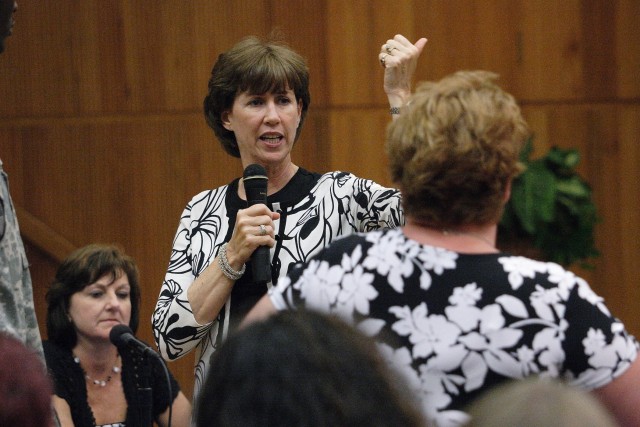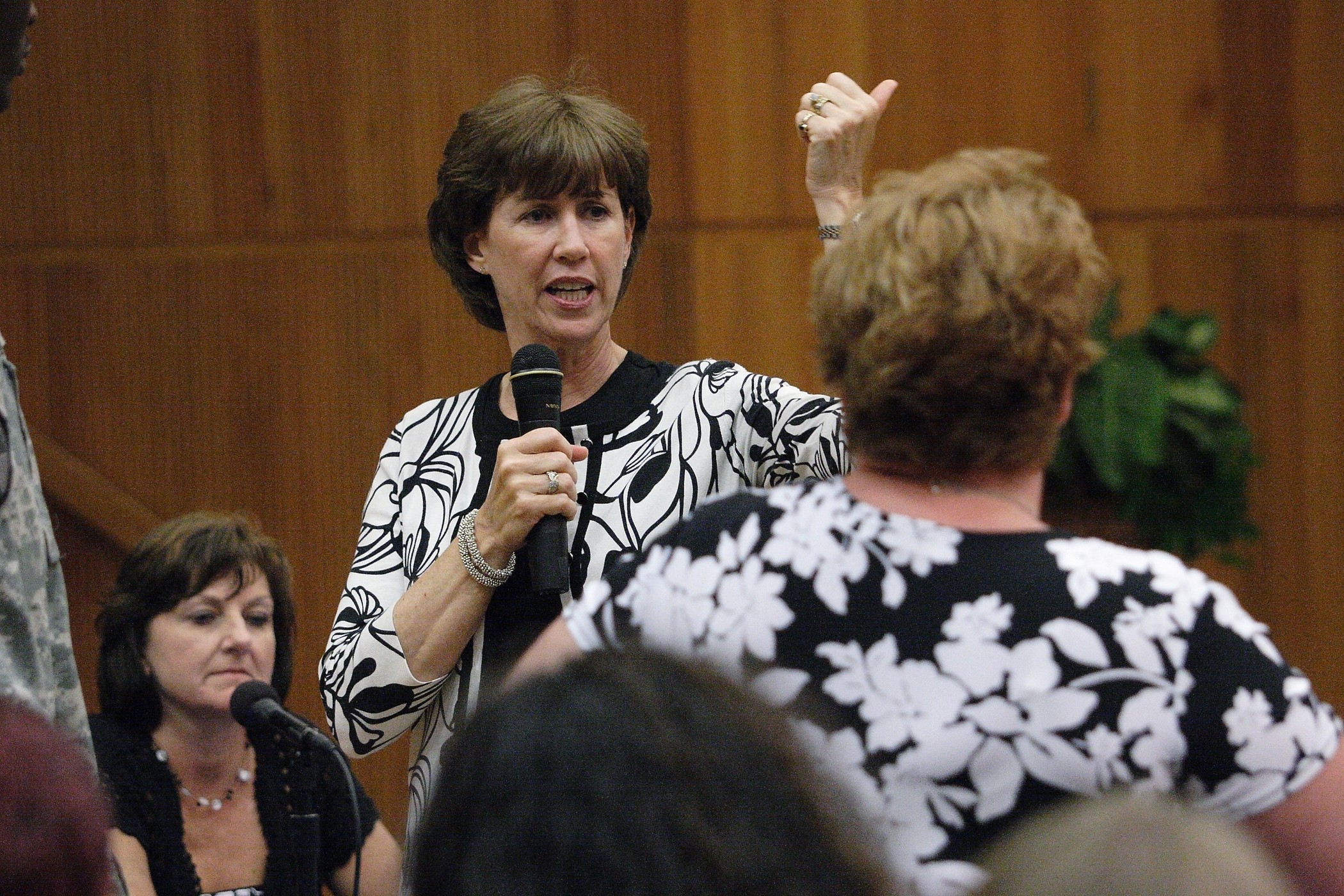Sheila Casey knows times are tough, but asked Army Families to hang in there.
She urged Fort Hood Family members to take advantage of available Army programs and get involved during a July 24 visit to the post.
Casey, the wife of Army Chief of Staff Gen. George Casey, listened to the Families' issues and offered guidance and suggestions gleaned from her more than 30 years as an Army spouse during a town hall forum at the Phantom Warrior Center.
"I love meeting with the Families. That's really the most important thing I do," Casey said after meeting with the spouses. "The spouses continue to amaze me with how resilient they are, as stretched and as stressed as they are with these continuous deployments."
After fielding questions regarding child care, deployments, reintegration and services on post, Casey said she was not surprised by anything she was asked at the town hall.
As the Caseys travel the world addressing Army Families, the same issues arise, she said.
Casey suggested spouses get involved with groups and organizations, such as Army Community Services and the Directorate of Family Morale, Welfare and Recreation, on post and find out what is available to them and their children.
"They need to seek out information, organizations, get involved with their (Family readiness group), be a part of their FRG. I think they also need to get involved with other military spouses," Casey said. "Really, our best source of support is one another."
She said spouses need to find something for themselves, something they love to do.
"They need to take care of themselves because if they do not, they cannot take care of their Families or the members of their unit," Casey said.
When her husband took his post, the Caseys spent the first 100 days traveling the world and speaking with Army Families and Soldiers about their needs.
"The common thread was, 'we don't need any fancy new programs.'" Casey said.
Families and Soldiers needed funding for programs already in place and to standardize them from post to post.
"That is the genesis for the Army Family Covenant," Casey said, referencing the Army's $1.4 billion commitment to improve the quality of life for Families, which was signed Nov. 1 at Fort Hood.
The covenant addresses issues and improves services and amenities based on what the Caseys heard in their travels and discussions with Army Family members.
Among the immediate effects: Soldiers and Family members are seeing more staff being hired, child care hours have been increased and expanded, Child and Youth Services' registration fees have been cut. Family readiness support assistants have been hired down to battalion levels.
Army Family Covenant programs continue to improve.
Child care centers and barracks are being built on installations throughout the world. Better Opportunities for Single Soldiers programs are expanding. On the medical end, more counselors are being hired.
"When we talk about the Army Family, we are not talking about the unit of a husband, a wife and children. We are talking about the composition of what makes up an Army Family. They're the Soldiers, single or married. They're the Family members, be they the spouses and children. It's the civilians and contractors," Casey said. "It's a much broader term than what've we've described as Families in the past. It's not the same. It's much more inclusive."
While Family members on the homefront are facing difficulties, so are deployed servicemembers.
"It is really important that we not only have programs and help support the spouses here, but also the servicemembers because all of these people going through this (deployments) they are changed people and they're changing in different locations and their changes are precipitated by different things so when they come back together again they're different people," Casey said. "It really is incumbent upon us, the Army, to help them with programs."
All of these programs are in place to keep the Army Family strong and keep the Army Family together.
"The Army Family is really a strong and a good group of people," Casey said. "The Army is strong. The Army Family is strong."
Casey acknowledged Army life is hard, especially with the continuous deployments. Even in the difficult climate, she said Army Families are sticking with it and sticking it out.
"It's tough now I know it's tough but this is not going to last forever. It's going to be a tough couple of years until we can grow the Army and get the numbers of units deployed down," Casey said. "I try to give them some hope that there is light at the end of the tunnel."


Social Sharing